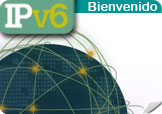Schedule: GNSO
Wednesday, 4 March 2009
Scribe Feed: http://mex.icann.org/scribe-feed
What it is | In this session the Generic Names Supporting Organisation (GNSO) Council, the body responsible for managing the policy development process for generic top-level domains (gTLDs), provides an opportunity for community members to interact with the Council as it conducts its meeting.
Who should attend? | Anyone interested in the GNSO's policy work is free to attend.
E-Crime and Abuse of the DNS Forum Launched at Mexico City
Véase la agenda en español por abajo [PDF, 170K]
Veuillez trouver la version française de l'agenda en bas [PDF, 174K]
Interpretation | There will be simultaneous interpretation for this session starting at 15:30.
Remote Participation Options|
1. Telephonic remote participation (English only)
2. Chat between remote participants and those in the room (English, Spanish, and French)
Chatroom: http://icann.na3.acrobat.com/e-crime_and_dns_abuse/
Instructions on how to participate remotely may be found at this URL:
https://st.icann.org/alac-docs/index.cgi?remote_participation_e_crime_and_abuse_of_dns
(participations will be muted by default, please submit your questions via chat interface)
Co-sponsored by the At-Large Summit, this public Workshops is sure to be one of the major highlights of the entire ICANN 34th International Meeting. The Forum, composed of presentations, panel discussions, and breakout sessions of the participants, will explore how E-Crime online works, how it relates to the DNS, and how arious communities work together to respond to it. With substantial involvement in the session by At-Large Experts from around the World, this session is a must-attend-event not just for Summit delegates but for all ICANN stakeholders.
What it is | The Forum provides participants with an opportunity to discuss numerous global activities and issues related to e-Crime and DNS abuse that involve a broad array of international actors. While not all of these issues fall within ICANN's narrow mission, the Forum intends to facilitate public dialogue and working relationships on e-Crime and DNS abuse among members of the global Internet community, as requested by the ICANN community.
Why it is important | As e-Crime and DNS-based abuse targets Internet users and providers worldwide, a key challenge for the Internet community is to understand the environment, policies and legal framework used to combat these online threats.
Who should attend? | Anyone interested in examining: the e-Crime and DNS abuse landscape; and the role of ICANN Staff, ICANN stakeholders, law enforcement agencies, and others in responding to such abuse.
Summit Microsite | The At-Large Summit microsite has complete information at: http://www.atlarge.icann.org/summit.
Background: What is the “At-Large Summit”?
The Mexico City meeting is a landmark for ICANN’s At-Large community (“At-Large” is the name used for the individual Internet user community participating in ICANN).
The whole At-Large community will be meeting together face-to-face in the ‘At-Large Summit’. Approximately 90 representatives of At-Large organisations (called “At-Large Structures”) are already confirmed. You will be able to spot them easily, as each will have a ribbon indicating their status as a Summit delegate attached to their ICANN meeting badges.
The Summit is being held 28 February through 5 March 2009 at the Mexico City Sheraton and also at the nearby Melia Mexico Reforma Hotel. All ICANN meeting attendees are invited and encouraged to attend the sessions, all of which are open to everyone.
As proposed by the At-Large community, the Summit has the following objectives:
• Develop the community’s capacity for engagement in ICANN by increasing its knowledge and understanding of the key issues confronting ICANN and ICANN’s roles and responsibilities;
• Provide an opportunity for the community to finalise and present its advice on some of the most important issues facing the ICANN community today; and last but not least,
• Highlight the successes of the community in recent years and build upon them to ensure that the interests of the world’s more than 1 billion individual Internet users are well represented in the development of Internet name and number policy.













